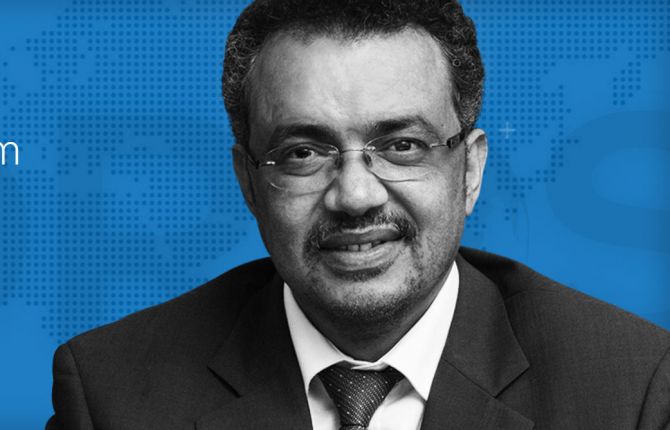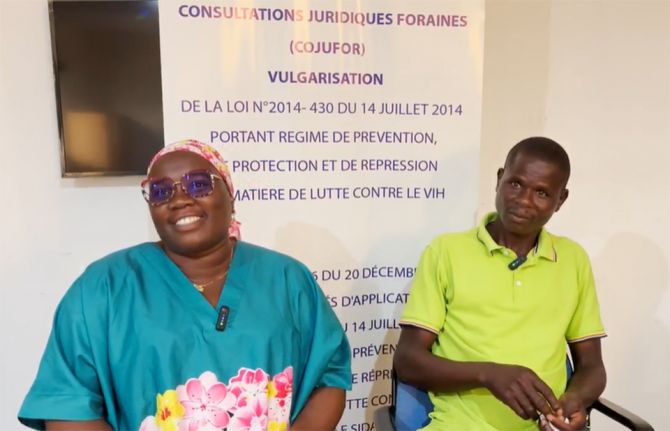

Update
Interview with Tedros Adhanom Ghebreyesus, WHO Director-General elect
24 April 2017
24 April 2017 24 April 2017The World Health Organization Member States elected Dr Tedros Adhanom Ghebreyesus as the new WHO Director-General on 23 May 2017 during the World Health Assembly.Dr Tedros will begin his five-year termon 1 July. Ahead of his election, Dr Tedros talked to unaids.org about the AIDS epidemic and the broader global health landscape.
Question: As Director-General of the World Health Organization, what will be your three priorities to advance progress in ending AIDS by 2030 as part of the Sustainable Development Goals?
Over the last 20 years, we have made tremendous progress on combating AIDS. I commend the advocacy and leadership role of UNAIDS in achieving these results and coordinating and harmonizing the United Nations system’s response to the AIDS epidemic. If elected as Director-General, I will have the following three priorities as part of the health sector AIDS response.
First, I will champion efforts to sustain the progress we have made so far without complacency and to renew our commitments to end AIDS as a public health problem by 2030. The global commitment for the Sustainable Development Goals offers a profound opportunity to tackle the structural, social and economic changes needed to end AIDS. I will ensure the World Health Organization (WHO) is part and parcel of these efforts, working alongside UNAIDS, the United Nations system, Member States, civil society and community groups.
Second, my topmost priority as Director-General of WHO will be universal health coverage, and I will work to ensure that each person living with HIV has access to the HIV prevention, treatment and care services they need. We will give due emphasis to HIV prevention and addressing comorbidities, such as HIV-associated tuberculosis, as well as the growing concern of noncommunicable diseases. Universal health coverage will also help key HIV populations, such as sex workers, men who have sex with men, people who inject drugs, transgender people, migrants and adolescents, reach HIV prevention, treatment and care services. WHO will provide Member States with the normative tools, guidance and support they need to implement these policies.
And finally, I would prioritize building strong, community-based health systems which can design and implement locally tailored prevention and treatment programmes. This will include strengthening primary health-care systems to deliver HIV prevention, treatment and care. Ensuring investment in health systems will not only help us manage HIV/AIDS, it will also support our efforts to prevent and treat other communicable and noncommunicable diseases, as well as prevent and respond to future health emergencies.
Question: How important do you feel the lessons learned in the AIDS response are in shaping the future of global health?
I have no doubt that the lessons we learned in the AIDS response have been critical to shaping the future of global health, both in terms of what we need to do and how we need to do it. The AIDS response first and foremost taught us the importance of political advocacy, community mobilization and determination to overcome despair with ambition and solidarity. The lessons of the AIDS response showed us the value and power of multistakeholder engagement and that we cannot address a health issue at its root only by focusing on the health sector. We also learned that with global solidarity we can innovate and mobilize dramatic domestic and international resources for health, which not only had a profound impact on HIV, but also on the broader health system. For example, when I was a Minister of Health of Ethiopia, we created a 2% HIV Solidarity Fund (a pool fund of 2% salary contributions of civil servants) to initiate our HIV treatment programme. Particularly in the face of changing political climates, we need this type of creativity, commitment and multisectoral response as we work to place universal health coverage at the centre of the implementation of all Sustainable Development Goals.
Question: As the AIDS response has scaled up to reach millions, one of the key challenges has been the lack of community health workers and the capacity of the health system to deliver services at scale. How will you address the challenge of building up the health system to prepare for the next disease outbreak and to meet current health challenges, including AIDS and noncommunicable diseases?
Scaling up community health workers and health system capacity must be a fundamental component of our efforts to achieve universal health coverage, which will be my topmost priority if elected as Director-General. These efforts can build on the tremendous progress made and experiences gained in the last two decades tackling HIV, tuberculosis, malaria, neglected tropical diseases, and child and maternal mortality. As part of this effort, we also need to strengthen primary health-care systems with integrated community engagement to address communicable and noncommunicable diseases, such as cancer, heart disease, chronic respiratory diseases, diabetes and injuries. These efforts will help not only to deliver evidence-based health promotion, prevention, treatment and rehabilitation services, but also to enhance prevention, detection, response and recovery efforts for health emergencies.
As Director-General, I will build on my first-hand experience addressing this capacity gap in Ethiopia to support Member States and national health authorities’ efforts to develop and implement policies aimed at ensuring universal health care. In Ethiopia, for example, our flagship Health Extension Programme deployed nearly 40 000 community health workers in every village of the country. HIV prevention was one of their key activities—a focus which has resulted in a 90% reduction of new HIV infections between 2001 and 2012. WHO has a key role to play in sharing these types of lessons learned across countries. It also needs to help build and maintain partnerships among the diverse group of players involved in global health—country governments, donors, the private sector, civil society and academics—to overcome barriers to achieving universal health coverage, including improving access to quality diagnosis and care, essential drugs and financial protections. Finally, I will also work to put and keep universal health coverage on the agenda at the highest political levels possible, maintaining the political will and resources needed to achieve these goals.
Question: How will you ensure that people affected by HIV, especially key populations, such as sex workers, gay men and other men who have sex with men, people who inject drugs, transgender people and migrants, are not left behind in efforts to achieve universal health coverage?
Our efforts to achieve universal health coverage need to prioritize the needs of the vulnerable and marginalized. Specifically, I believe WHO must champion mechanisms to meaningfully listen to, learn from and engage these groups. This engagement—and what we learn from it—should then be at the centre of our efforts to mobilize resources and hold authorities accountable for the health of all, regardless of age, gender, income, sexual orientation or religion. In addition, it will be essential to improve our evidence base around effective ways to reach the most vulnerable and most marginalized. New research can help us develop data-driven and results-oriented solutions, which will help us maximize the impact of interventions we invest in. Part of this effort will also require us to build and improve the infrastructure for data collection and ensure that the data we collect are used to inform policies. Lastly, WHO is ideally positioned to address inequality in health care, and, if I am elected Director-General, I will be a strong voice and committed champion to ensuring everyone has the right to health care.
Question: What does UNAIDS mean to you?
I will start with a personal note. It has also been a great pleasure and honour to have had a chance to chair the Programme Coordinating Board (PCB) during my time as Ethiopia’s Minister of Health in 2009–2010, and to consider UNAIDS a close partner for more than a decade. It was during my time on the PCB that UNAIDS increased its focus on health systems strengthening and HIV prevention, including country ownership—setting the stage for our universal health coverage efforts. We also worked to implement the new UNAIDS mission statement, which outlined its priorities and vision for the future.
I believe UNAIDS’ provocative leadership has been critical in addressing the AIDS epidemic and converting it from a death sentence to a chronic health condition. Its global role has not only garnered the highest political support for the AIDS response, but also ensured the voices of those affected by HIV and their families are at the centre of the response, including placing civil society within its governance structure. I believe consolidating these experiences will be useful to tackle the structural, social and economic changes needed to end AIDS as part of the Sustainable Development Goals. I also take note of the recent recommendations of the Global Review Panel on the Future of the UNAIDS Joint Programme Model.
If elected Director-General of WHO, I would look forward to continuing our work together and our close partnership.



